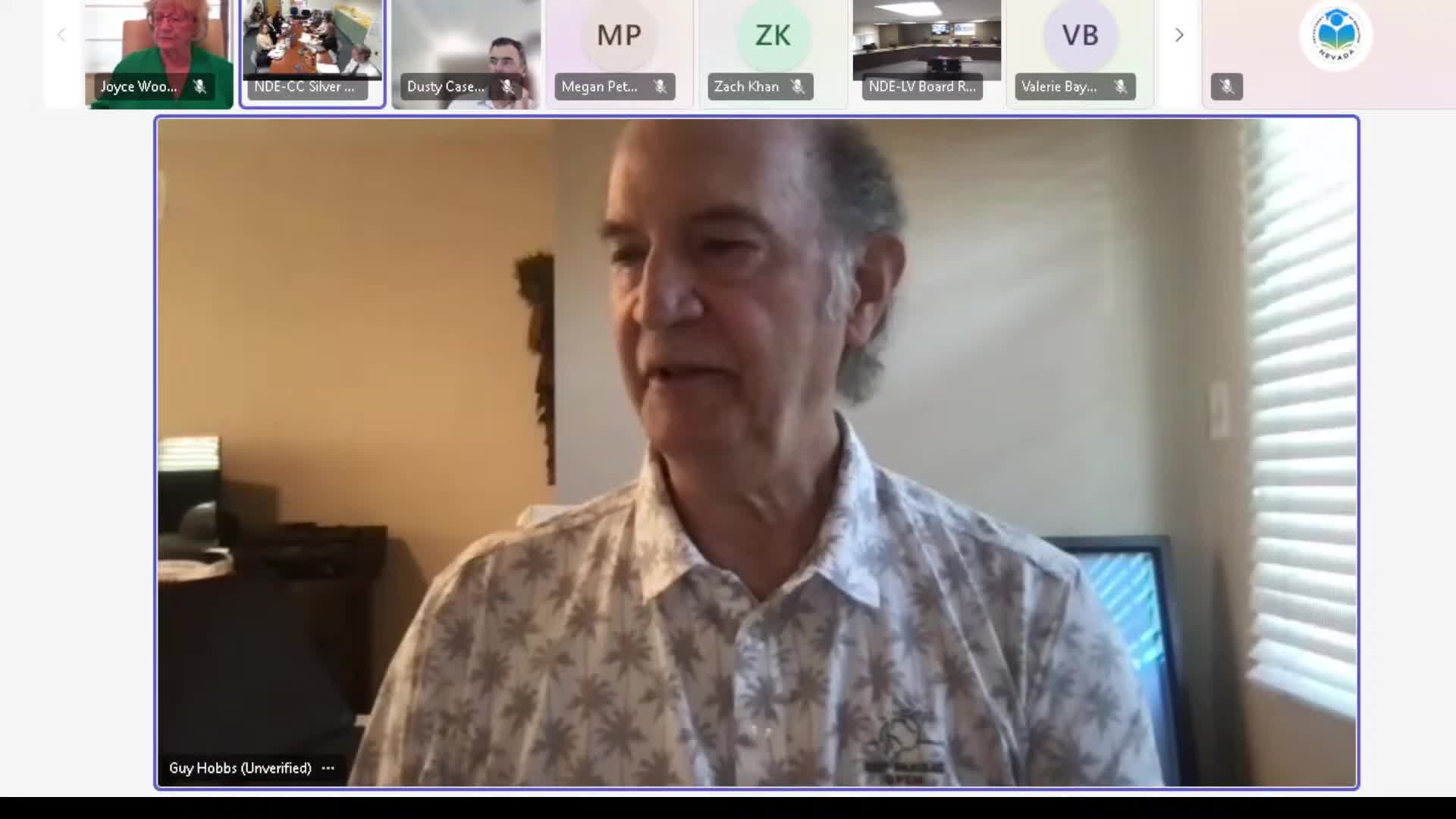Deputy AG Greg Ott briefs commission on open-meeting law: working groups may gather information but must avoid deliberation among a quorum
October 18, 2025 | Department of Education, Executive Agencies, Organizations, Executive, Nevada
This article was created by AI summarizing key points discussed. AI makes mistakes, so for full details and context, please refer to the video of the full meeting. Please report any errors so we can fix them. Report an error »

Deputy Attorney General Greg Ott reminded commissioners of the constraints and allowances of Nevada’s open-meeting law as they organize working groups.
"The open meeting law is designed to protect ... making sure that the public has access and an ability to input on the collective decision making of the public body," Ott said. He emphasized that individual members may gather information and speak with stakeholders, but collective deliberations that constitute recommendations for the full body must occur in publicly noticed meetings.
Ott cautioned commissioners about serial communications. He illustrated how multiple one-on-one messages or text strings can effectively create a quorum if participants iteratively solicit input from others. "Those serial communications are really easy ways to formulate a quorum," he said, and advised that if members think they need wider input, they should ask staff to agendize the topic for a public meeting.
Ott explained that a working group that is not constituted as a subcommittee may gather information but does not have authority to bring formal recommendations; if the commission decides a group should make recommendations, it should be formally appointed and required to follow chapter 241 open-meeting procedures, including notice and opportunity for public comment.
Why it matters: commissioners are forming multiple working groups for technical policy work. Ott’s guidance makes clear how the commission can use small groups for research without violating open-meeting rules, and when they must convert groups into public subcommittees.
Ending: Ott urged commissioners to contact the Attorney General’s office with questions about conflicts, voting disclosures or meeting procedures and to use staff to agendize items that require broader deliberation.
"The open meeting law is designed to protect ... making sure that the public has access and an ability to input on the collective decision making of the public body," Ott said. He emphasized that individual members may gather information and speak with stakeholders, but collective deliberations that constitute recommendations for the full body must occur in publicly noticed meetings.
Ott cautioned commissioners about serial communications. He illustrated how multiple one-on-one messages or text strings can effectively create a quorum if participants iteratively solicit input from others. "Those serial communications are really easy ways to formulate a quorum," he said, and advised that if members think they need wider input, they should ask staff to agendize the topic for a public meeting.
Ott explained that a working group that is not constituted as a subcommittee may gather information but does not have authority to bring formal recommendations; if the commission decides a group should make recommendations, it should be formally appointed and required to follow chapter 241 open-meeting procedures, including notice and opportunity for public comment.
Why it matters: commissioners are forming multiple working groups for technical policy work. Ott’s guidance makes clear how the commission can use small groups for research without violating open-meeting rules, and when they must convert groups into public subcommittees.
Ending: Ott urged commissioners to contact the Attorney General’s office with questions about conflicts, voting disclosures or meeting procedures and to use staff to agendize items that require broader deliberation.
View full meeting
This article is based on a recent meeting—watch the full video and explore the complete transcript for deeper insights into the discussion.
View full meeting